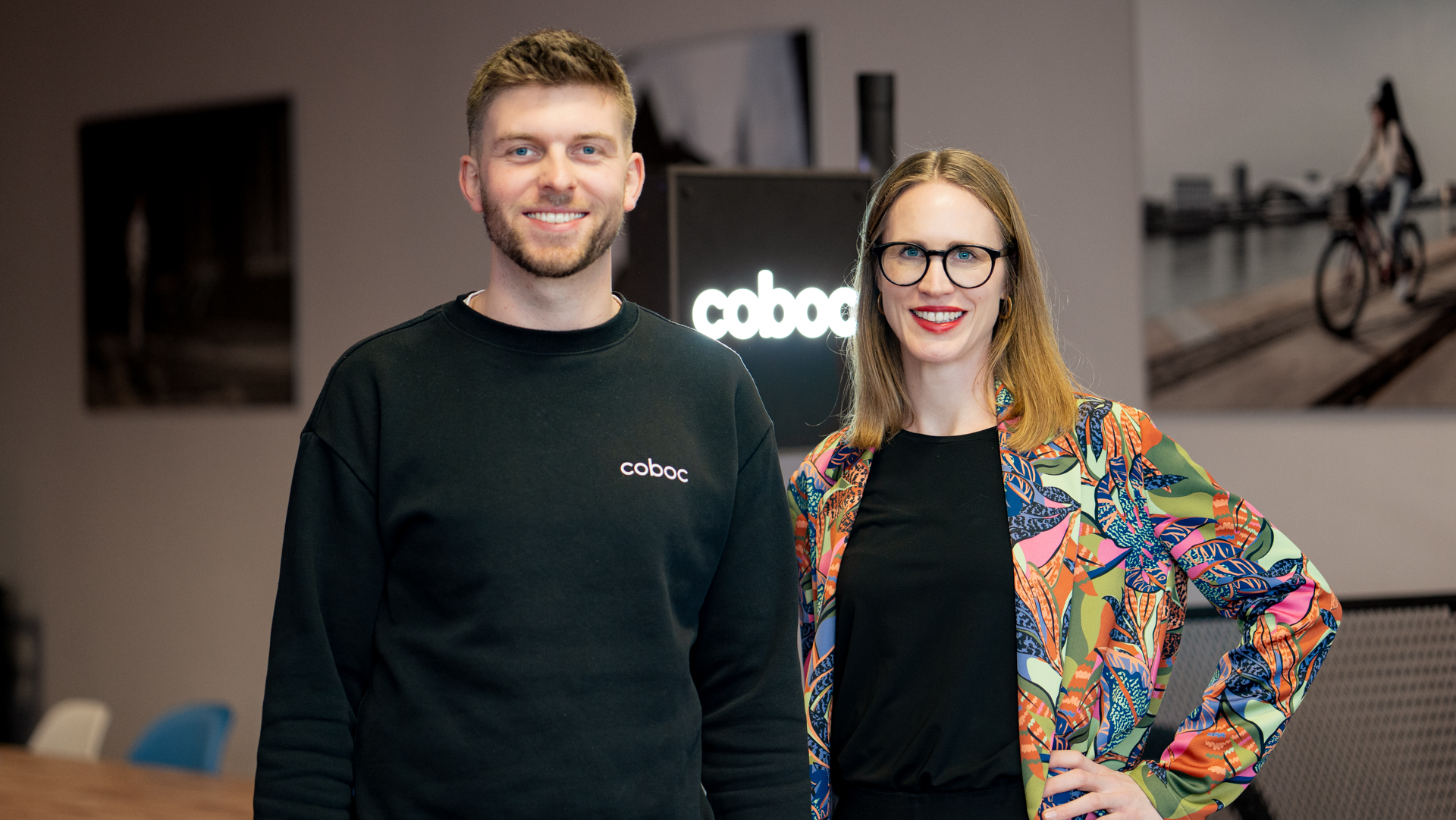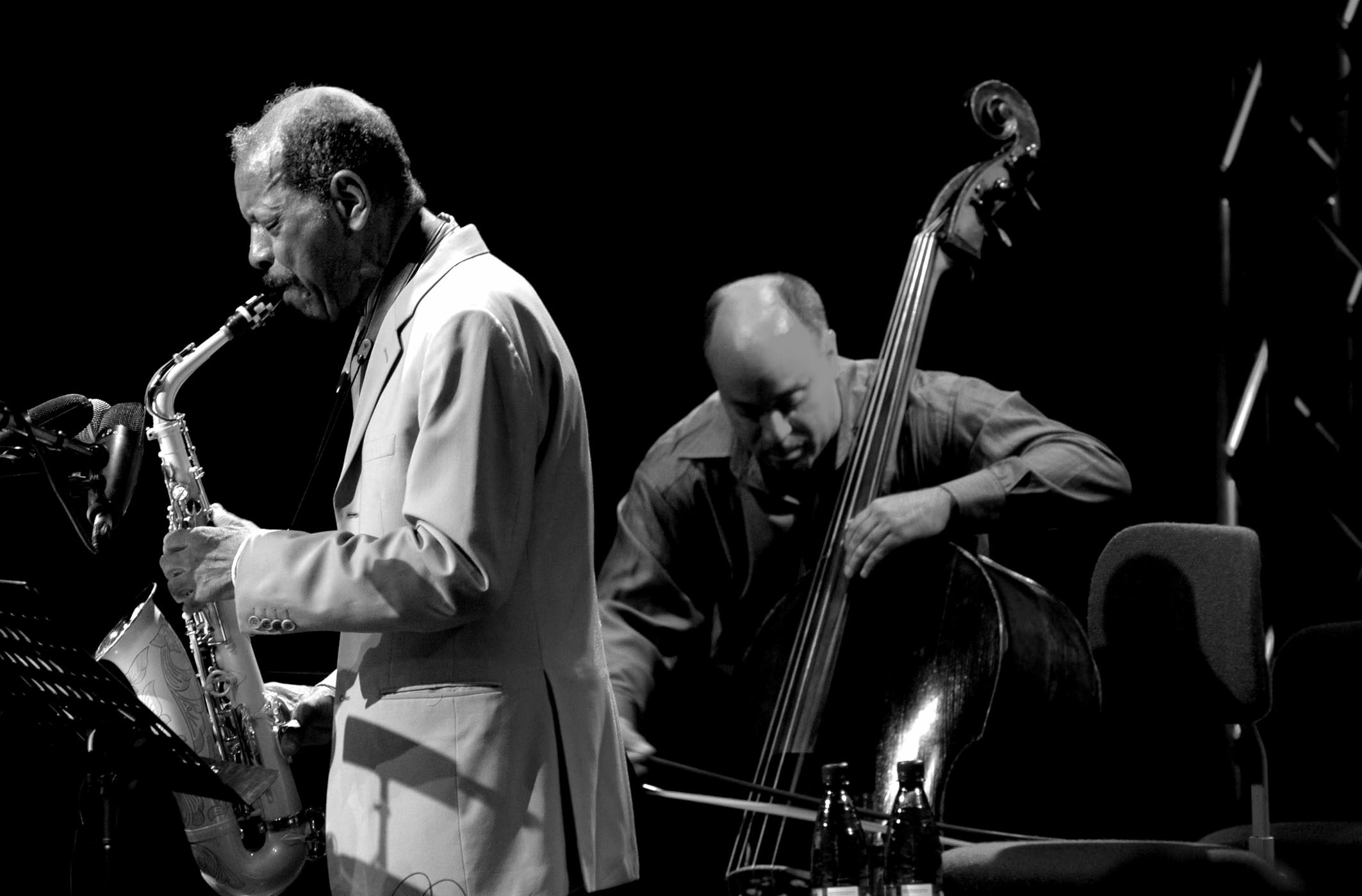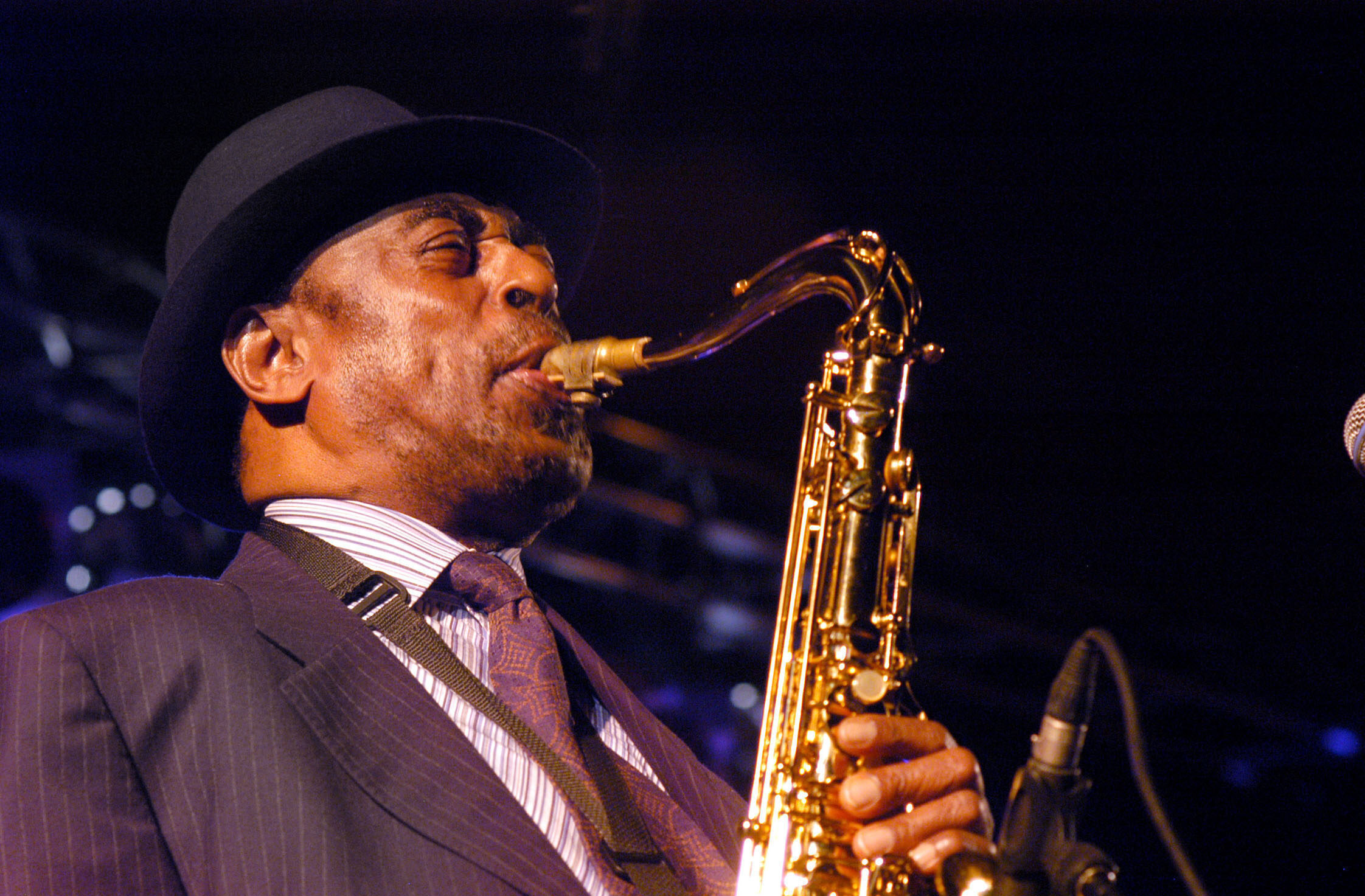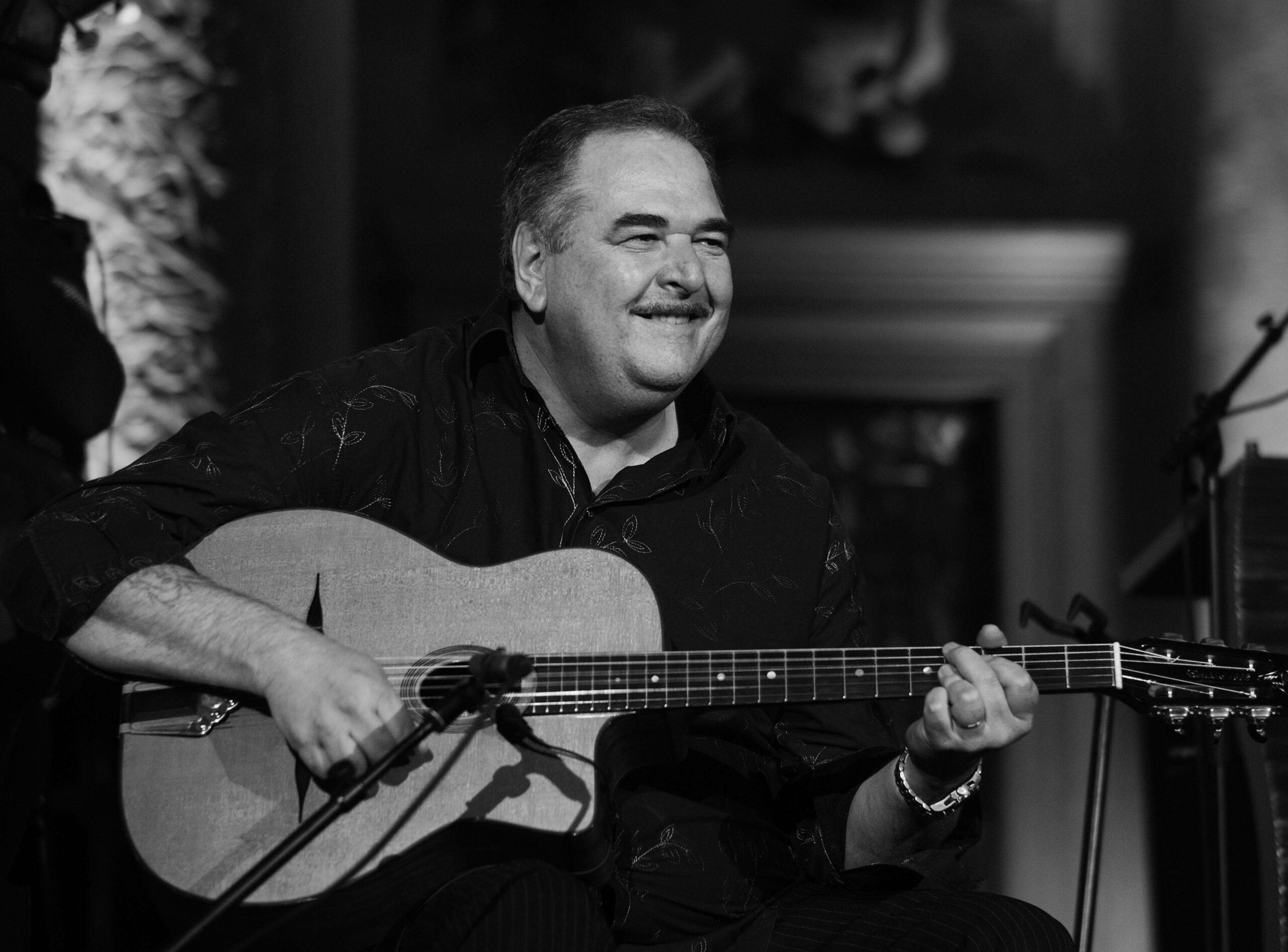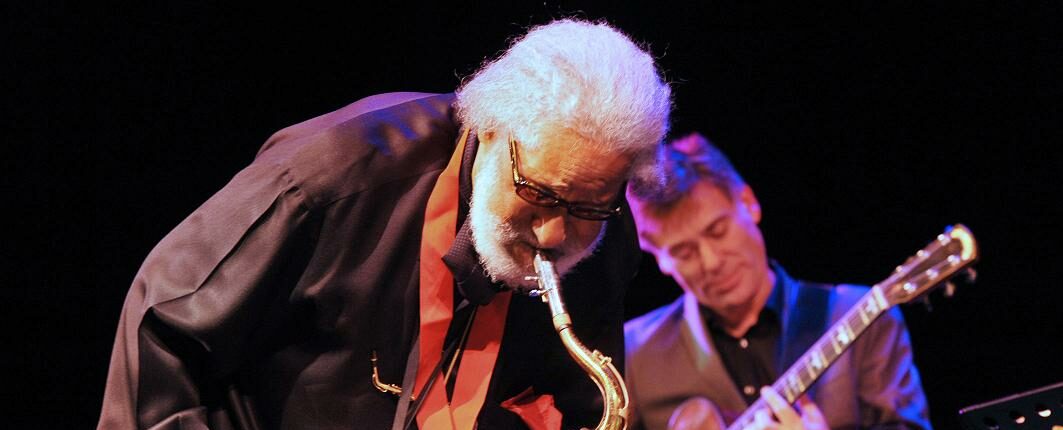Gary Peacock is a fixed point in the history of jazz of the last the last 60 years. He began his career in the mid-1950s in Germany, where he performed with Hans Koller, Albert Mangelsdorff and Attila Zoller, among others, during his time in the army in the Frankfurt area. Mangelsdorff and Attila Zoller - at that time, incidentally, still as a pianist. Back in the USA, he played with style makers and innovators such as Ornette Coleman, Albert Ayler, Paul Bley and Miles Davis. Above all, however, he was or is a member of the two probably most influential piano trios in jazz around Bill Evans and Keith Jarrett - and thus a unique link in the history of jazz. But he has also achieved remarkable compositional as can be heard on his latest production. "Now this" can be heard. The album, naturally in piano trio format (with Marc Copland and Joey Baron), brings together some excellent new pieces, some of which are of a thoroughly standard quality. The practicing Buddhist has retained his curiosity even at the age of 80 and has only just added Michael Wollny to the select group of pianists he accompanies; the premiere of this collaboration in duo format was at the last Enjoy Jazz Festival in Ludwigshafen. Festival director Rainer Kern personally arranged the collaboration. Peacock had not known Wollny until then, but was immediately enthusiastic about the idea of a collaboration after the first contact. Because he appreciated Wollny, probably the most interesting and most popular jazz pianist in Europe at the time, for his extremely creative roots in the European musical tradition. While strolling through Heidelberg together, the opportunity arose for a pleasantly relaxed and free-spirited conversation with the American master bassist, who still manages to make everyone he plays with that little bit better.
Note: This interview originally took place in 2016 and is published here on the occasion of the 25th anniversary of Enjoy Jazz. The statements and references made in the interview refer to this date.
I think we know far too little about you as a composer. So perhaps let's take the example of "Gaia", the first track on your current CD "Now This", and talk about how such a wondrously simple and yet universal melody is created in the first place. comes into being.
GP: Even if I try to trace the developmental stages of my compositions, it is impossible for me to name an initial. I usually sit at the piano and play. And then it is the music itself that suddenly answers me. I suddenly hear something that makes me pause. Then I stop playing immediately. So that the motif doesn't slip away from me, changes color, develops naturally in harmony with time. It really is a physical process: I stop playing, get up and move away from the piano. I have to do this because otherwise I would lose the inner sound. I simply need this peace and quiet to ask myself: What am I doing with this idea? What is hidden in it? Why did it spontaneously take hold of me? Where is its magic?
Does that mean you are moving from listening to thinking?
GP: On the contrary. I don't think. I listen. Exclusively. In this case, inwardly.
Many artists find it difficult to find the right ending in their work. How do you know that a piece is finished?
GP: The music itself tells you. That also applies to the stage, of course. You just have to listen. A critic once asked Ornette Coleman the following: "Ornette, you play this completely improvised music, with no recognizable framework, no classical 32 bars, no form that you and the other musicians could reliably orientate yourselves by. How do you know when a piece is finished?" To which Ornette replied: "Because it's over." Great, isn't it? That is of course always an exciting question with completely or largely free music. always an exciting question. How do I know that something is over? The answer is: you can't know. You can only hear it. And that's exactly how I feel when I'm composing. You don't have to find the right time to stop. It is there.
You just don't always recognize it.
GP: Yes, if you listen carefully, you will recognize it. But you talked about "Gaia" before. The melody is very simple and repetitive.
It's like so often. The real magic lies behind it.
GP: Exactly! We hear it, but we don't understand it. We can't specify it or put it into words.
Do you remember what this melody triggered in you?
GP: Of course. But I can't formulate it. A musical feeling, and that's the great thing about it. It can't be reduced to the level of our other feelings: Love, haste, fear, jealousy etc. We use terminology to try to concretize something that is often actually concretized in a meaningful way in many areas of life. This is not possible in music. I have certainly been asked whether I would not also hear that this or that melody directly expresses love. My answer to that is: no. That is not its essence. Music can be used for that of course. Just think of film music. That's basically program music. The music illustrates or describes something. But that's not my musical world.
Music should not describe, but be?
GP: Exactly. That's their quality. - Do you know what I think? There are only two categories in music: Breadth and depth. Breadth is everything we can learn, everything we can convey, everything we can analyze and understand. All the stuff you're taught at university. All that is breadth. You can't learn depth. But depth is the real thing. When musicians play together, both aspects are always moving along the time axis. There is constant communication on both levels. Being able to play a standard together at any time is breadth. We can learn, coordinate and organize that. But depth? No. Not teachable. Not learnable. But audible. Music means listening. It's not really a question of technique. I once played with Miles Davis, including "I fall in love too easily". We played it five nights in a row. He started the piece each time with this typical high note (sings it out). Why did this tone or phrase blow me away every time? And why did it sound like he was playing it for the first time every time? How is something like that possible? You do the same thing over and over again and it's always new? How do you get yourself to that point? Where do you have to be inside to pull something like that off?
I am eagerly awaiting her answer.
GP: Also. But because you can't learn something like that, I can't answer the question. At least not in the way we would have liked to answer it. At this moment, you are simply nothing other than this one sound. The whole of being is this one sound, which is like the beginning and the end of everything. Or take a piece like "All the things you are". I don't know how many times I've played this standard. 2000 times? Definitely. First you learn the piece, get to grips with the chord progressions and so on. Once you're familiar with it, you start improvising on it and exploring the possibilities. explore the possibilities. And if you get bored with it at some point, it's because you've actually played it thousandth time you actually play it for the thousandth time - and not, as I as I tried to show with the example of Miles, the thousandth time you play it for the first time. And if a piece bores you, then you'll get bored of it too. I always ask myself I always ask myself: "Okay, if the piece didn't bore you the first time you played it, then you have to go back to the place of fascination. Go back. Look for the connection to your feelings." This first time can then happen again and again, just differently each time.
All of this indirectly touches on the big question of your own sound, your own personality in the game, and how to find both?
GP: Hm. You know, I think it's probably a mistake to look for this "own sound" at all. If you search for this sound, you will eventually construct it. I think that's unnatural. I have found that everything is much simpler than we think: Anyone who truly hears, listens without thinking, i.e. who is free in their listening, will find or be found their sound quite automatically. Let me try to put it another way: Imagine you have a certain sound. It's close to that. But what you imagine is not quite right. It doesn't fulfill you, it doesn't complete you. Then just keep listening. Don't leave this path. Live your life. Just keep navigating. But for heaven's sake, don't think about it. You will inevitably come across this sound. Curiously, I once spoke to Miles about this very topic and asked him what I should do. I felt uncomfortable with my sound and thought I wasn't getting anywhere. Then Miles asked me how long I had been working on it? I said maybe fifteen years. He waved me off and said, "Oh, it's nothing. Don't worry about it." That's pure wisdom. What he meant was: Don't search. Let your sound find you. And you will feel it when it has found you. However, it is important to realize that there is always a sound and to ask yourself whether this is exactly the sound you want and in which you feel comfortable, i.e. to ask yourself: is this my sound? Because everything happens through listening. Listening is depth.
In her case, it's not just the sound, but above all the positioning in the interaction. Her bass playing is positioned very centrally and flows from there incessantly, sometimes to open up, sometimes to merge.
GP: That's probably because, as a bass player, I've never seen myself as a soloist. That's not my idea of playing. I've always asked myself what I can do to make the soloist, whether pianist or wind player. has the feeling after his solo that he has just to have just played the best solo of all time. That's my job. It's not about showing the others what I can do on the instrument. My job is to make something else stand out. It's definitely a serving role. So when I'm on stage listening to another musician, I don't ask myself. What could I play now? I ask myself: What does the other person want to hear from me right now? What does he need? I provide orientation.
But in doing so, you are influencing someone else's solo, to stick with your example.
GP: Yes.
This is not serving, this is enabling.
GP: Yes, that too. But the guidance I give comes exclusively from listening. And I choose my response to what I hear so that the process that has been set in motion continues as excitingly as possible.
Is it just about listening or also about listening to the future, i.e. about imagination?
GP: If you really listen, then you don't think. And I listen. If you listen, it's like a "yes", if you think, it's a "yes, but ..." or a "yes, and ...". For me, it's always a pure and enthusiastic "yes".
Which brings us back to the subject of training. Here, of course, the main focus is on thinking. ...
GP: ... and thus missed all the essentials.
You not only studied music, but later also biology. Did that help you in your music or in your understanding of music?
GP: Yes - but you have to be careful not to go too far with such connections. Music is not a science. It does not take place in thinking. That's generally the problem with academic education: At university, you are mainly taught to think. Because, I repeat myself, only breadth can be taught. Not depth.
Depth is certainly also a major theme in the trio with Keith Jarrett and Jack DeJohnette. Does the very special chemistry in this trio also have something to do with the fact that you are all pianists by training?
GP: For sure. But also the fact that we are generally not restricted to our instrument. Keith, for example, played piano and violin for a long time - both so well that it was very difficult to decide which instrument he should concentrate on. He also he plays trumpet, saxophone, guitar and drums really well. Jack not only plays drums and piano, but also saxophone. So we're all very good at putting ourselves in different positions in the trio. These influences, which each of us brings to the table, lead to a balance that goes far beyond the balance of the instruments. As a result, we simply feel very precisely what our music can achieve, what it wants, where it can develop. But the most important thing is that we all have an understanding of music that is not about trying to prove anything. Not in the slightest. We can just let the music run free.
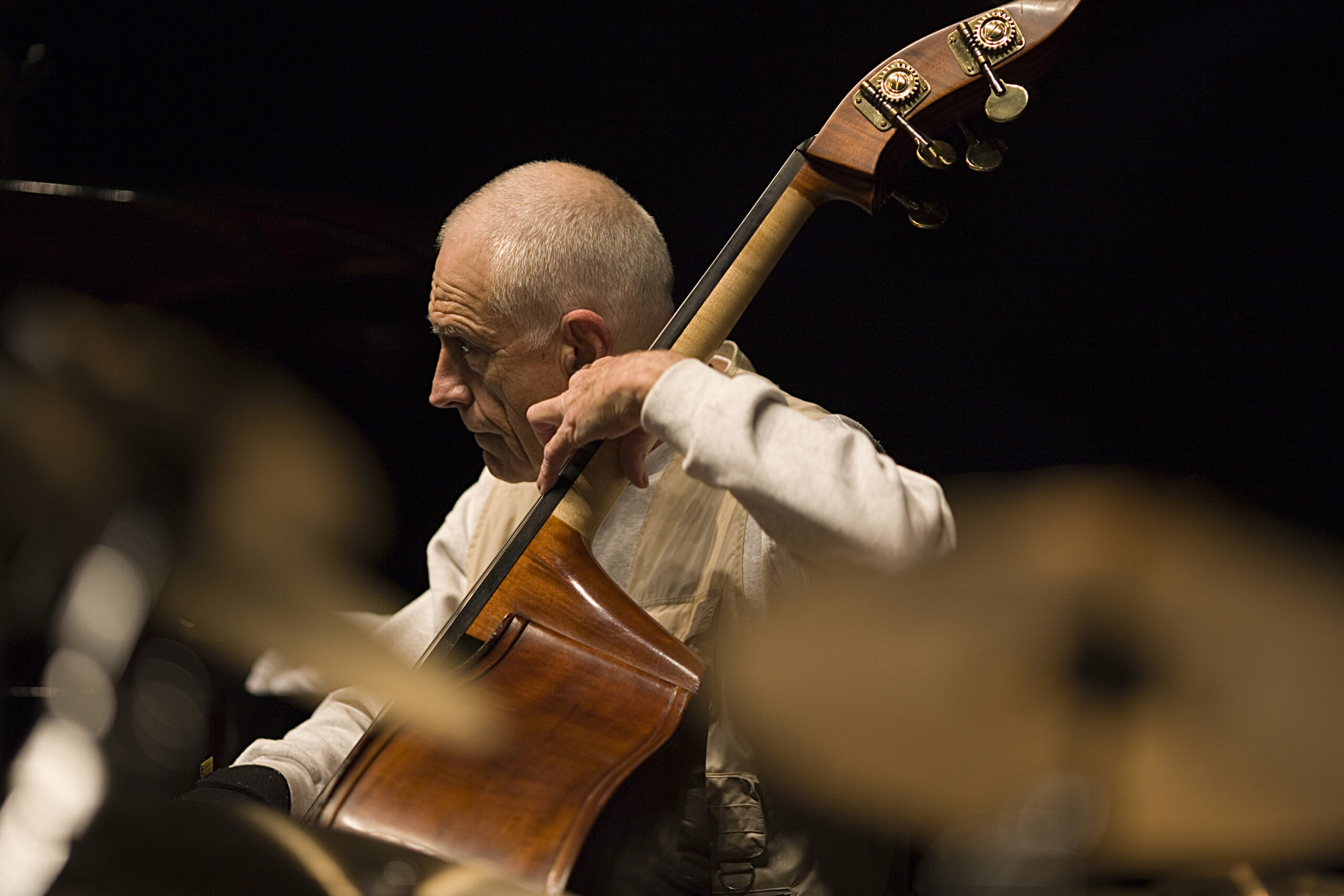
Date: December 14, 2023

